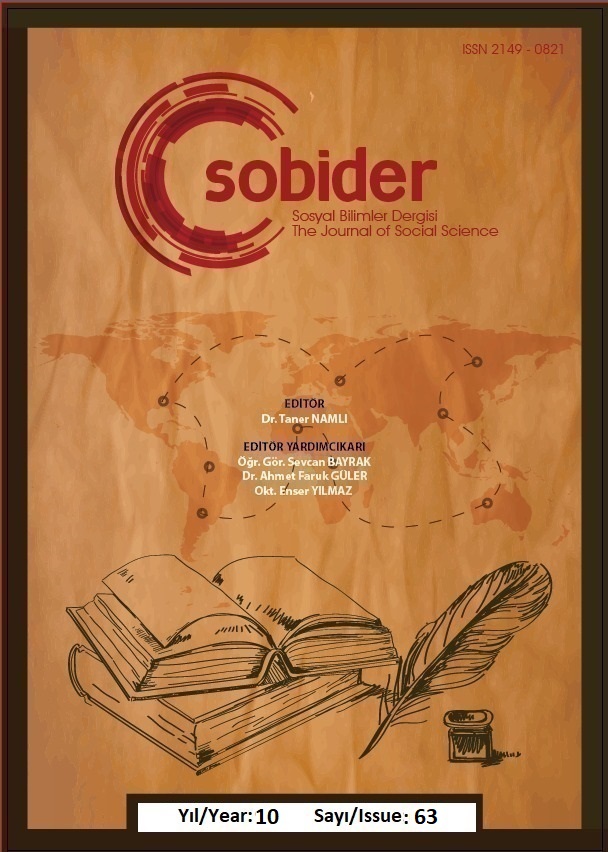Author :
Abstract
İslâm dininin temel iki kaynağı olan Kur’ân-ı Kerim’in ve sünnetin anlaşılması için “asleyn” denilen iki asıl; Usûlu’d-Din ve Usûlü’l-Fıkh büyük önem arz etmektedir. Usûlu’d-Din/ İman esasları; insana nereden geldiğini, nereye gittiğini ve hayatın gayesini anlatır. Usûlü’l-Fıkh ise Kur’ân-ı Kerim ve sünnet çerçevesinde dini hükümlerin nasıl anlaşılması gerektiğini, sahih te’ville fasid te’vilin nasıl birbirinden ayrılacağını, sınırsız sorunların sınırlı sayıdaki ayet ve hadislerle nasıl çözüleceğini öğretir. Bu amaçla doğru düşünmenin ve aklı yanlış sonuçlara varmaktan korumanın yöntemini içeren mantık ilmi ve onun ilkeleri dini hükümleri doğru bir şekilde anlamanın temel koşulunu oluşturur. Bu gerçeğin farkında olan ve felsefi hareketin batıdaki önemli bir ayağını oluşturan İbn Hazm mantık ilmiyle ilgili düşünce seyrini tarih içerisinde yeniden bir değerlendirmeye tabi tutarak bu disiplinin İslam hukukunda önem arz ettiğini vurgulamıştır. İbn Hazm mantık ilmini bilmeyenin fetvasına güvenilmeyeceğini ifade etmiştir. Mantık ilmi hususunda bu değerlendirmeleri yapan İbn Hazm, Burhan’ı en son gaye ve mantık’ın asli konusu olarak görmüştür. Burhan, cedel, safsata, hitabet ve şiir unsurları arasında en önemli olgudur. Bunlar Burhan’a ulaşmakta vasıta oldukları için mantık disiplininin konuları içinde yer almışlardır. Ona göre burhan kesin öncüllerden oluştuğu için bütün bilgiler bakımından en güvenilir sonuçları içinde barındırır. Çalışmamızda İbn Hazm’ın mantık ilmi hakkında yazdığı et-Takrib eserini esas alarak tasdik türleri ve beş sanat konularından olan burhan hususundaki görüşlerini irdeledik. İslâm Hukuku alanında burhana yüklediği fonksiyonu metin analizi yaparak ortaya koyduk.
Keywords
Abstract
In order to understand the Qur'an and the Sunnah, which are the two main sources of the religion of Islam, two main principles called "asleyn"; Usûlu'd-Din and Usûlü'l-Fiqh are of great importance. Usûlu'd-Din/ Principles of faith; It tells a person where he came from, where he is going and the purpose of life. Usul al-Fiqh, on the other hand, teaches how to understand religious decrees within the framework of the Qur'an and sunnah, how to separate sound ta'ville fasid ta'wil from each other, and how to solve unlimited problems with a limited number of verses and hadiths. For this purpose, the science of logic, which includes the method of thinking correctly and protecting the mind from reaching wrong conclusions, and its principles constitute the basic condition of understanding religious decrees correctly. Being aware of this fact and forming an important pillar of the philosophical movement in the West, Ibn Hazm emphasized the importance of this discipline in Islamic law by re-evaluating the course of thought about the science of logic throughout history. Ibn Hazm stated that the fatwa of those who do not know the science of logic cannot be trusted. Ibn Hazm, who made these evaluations about the science of logic, saw burhan as the last goal and the main subject of logic. Burhan is the most important phenomenon among the elements of cedel, fallacy, rhetoric and poetry. Since these are the means to reach burhan, they have been included in the subjects of the discipline of logic. According to him, since burhan consists of definite premises, it contains the most reliable results in terms of all information. In our study, we examined the opinions of Ibn Hazm on the types of attestation and burhan/demonstration, which is one of the five art subjects, based on the work of al-Takrib, which he wrote about the science of logic. We have revealed the function attributed to the burhan in the field of Islamic Law by analyzing the text.





